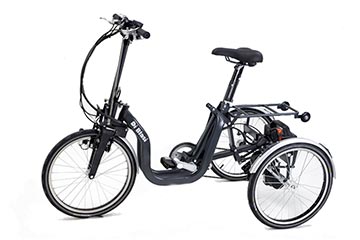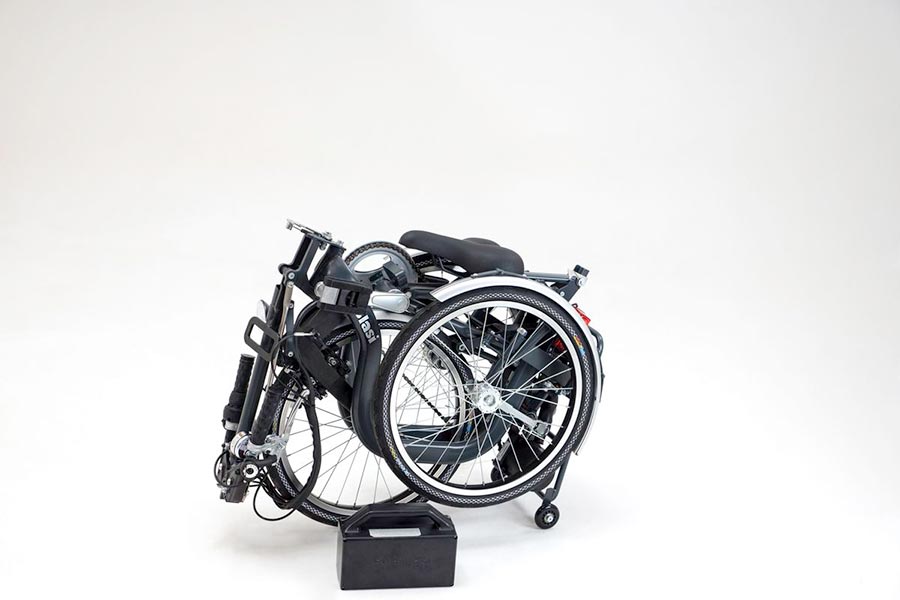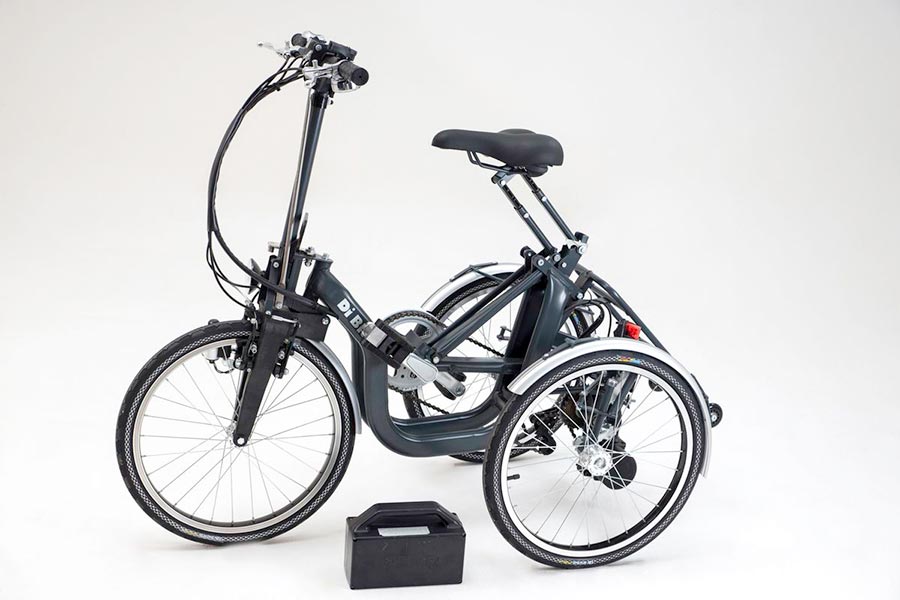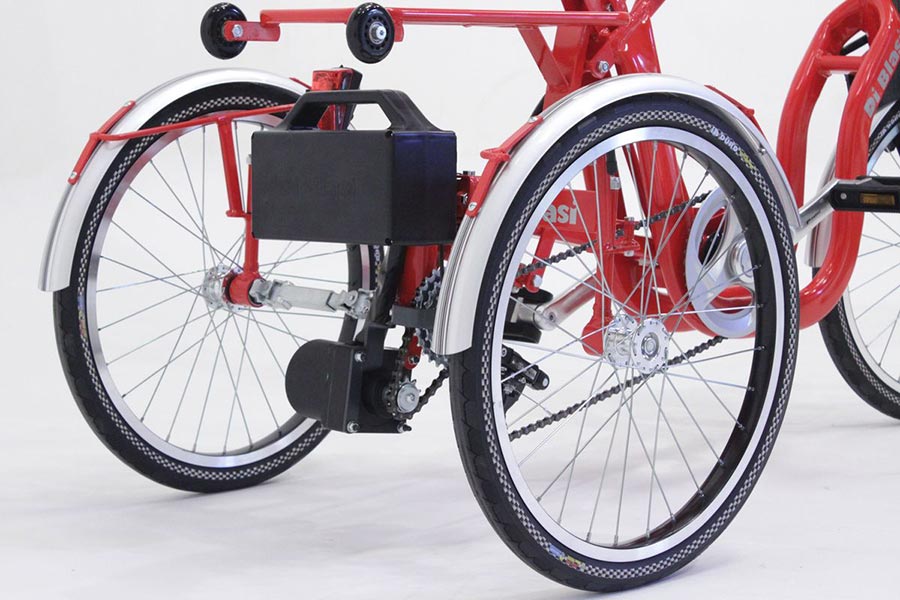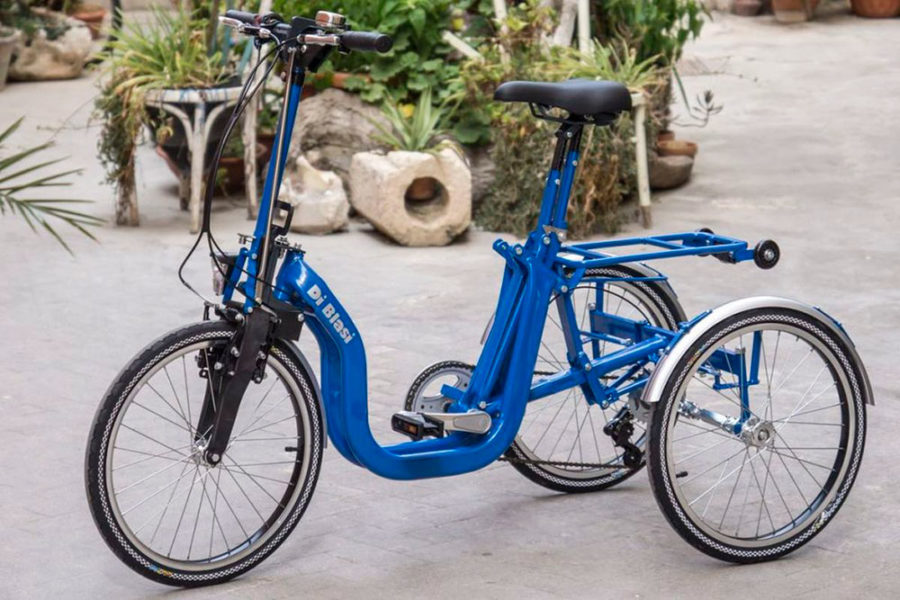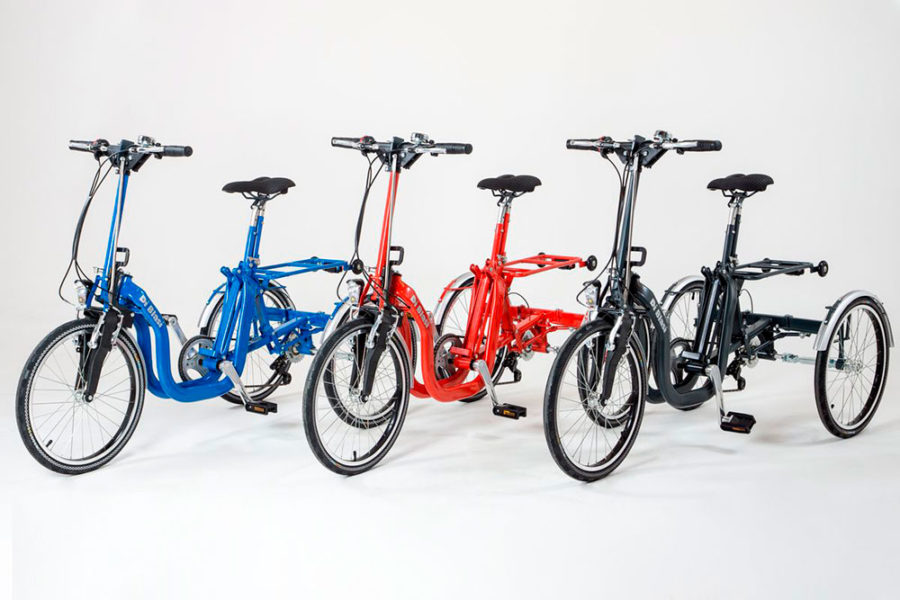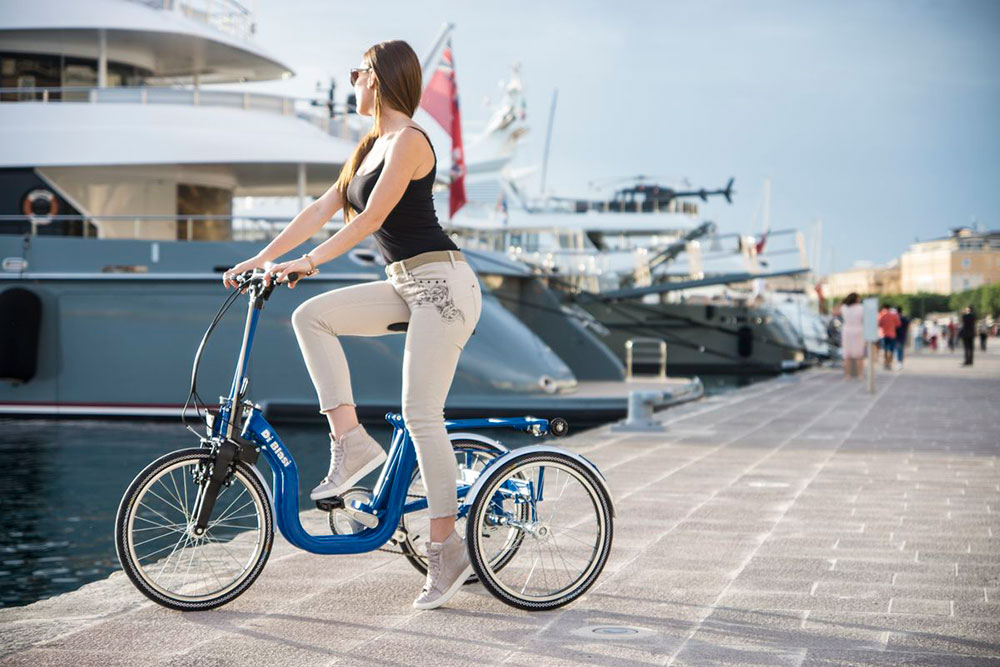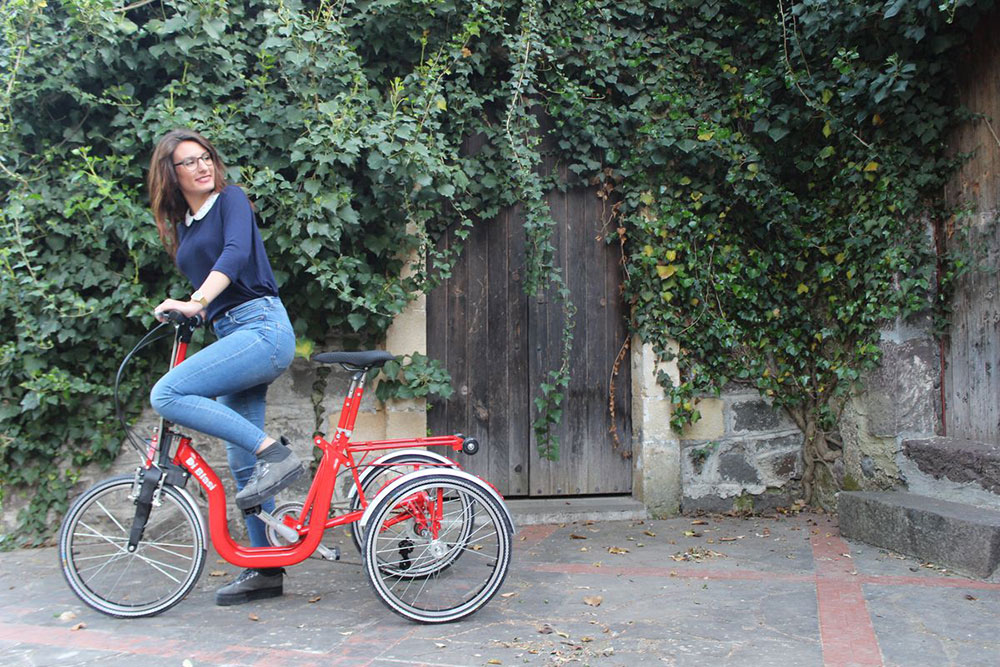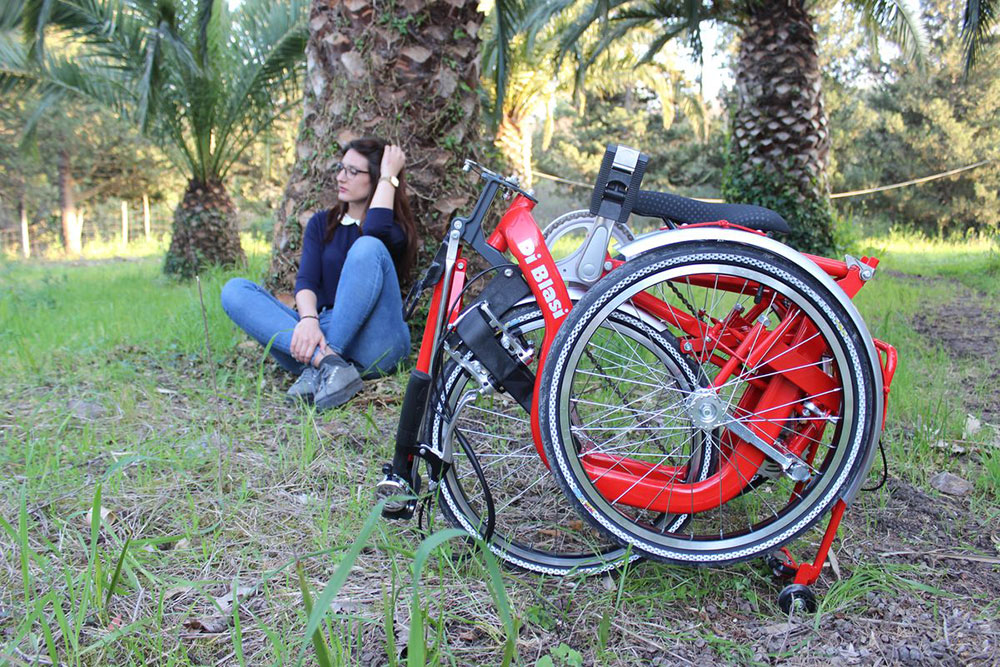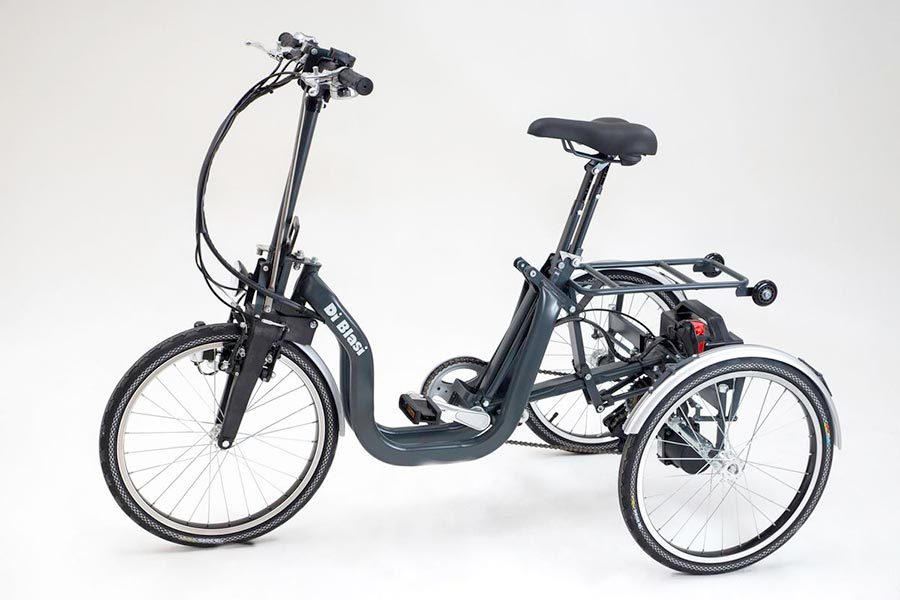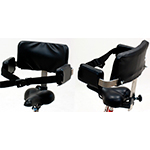Manoeuvrability
Thanks to the three-wheels configuration, the scooter R30 has an excellent manoeuvrability and a turning radius of only 71 cm. (28 in). It can therefore be used in narrow areas.
The 29 cm (11.4 in) diameter of the wheels and the 12 cm (4,7 in) ground clearance allow to travel also on unpaved or somewhat bumpy roads.
The wheels fit pneumatic tyres which ensure driving comfort and safeguard the structure of the scooter
Transport in passenger airplanes
The battery complies with IATA regulation UN 38.3. Therefore the scooter R30 can be carried as baggage on passenger aircrafts
Battery
The battery can be removed in one second and can be recharged on board the scooter or separately
The battery is a lithium-iron one (LiFePO4). This battery is considered the safest among all the batteries. Its life, i.e. the number of charge and discharge cycles that it can withstand, is over 2,000 cycles against the 500 cycles of the lithium-ion batteries usually used in mobility scooters. Furthermore, during the discharge the voltage remains almost constant so that also the performances remain almost constant during use.
Brakes
The scooter is equipped with a brake which is automatically activated when the accelerator is released. This brake is mechanic: unlike the usual electric brakes fitted in other scooters, this type of brake does not absorb energy while the scooter runs, which contributes to the scooter’s range.
The scooter is also equipped with an emergency brake that can be activated manually using a lever on the handlebar, like in bicycles.
Range
The scooter has a great autonomy (about 30 km – 18 Ml) obtained thanks to the high capacity of the battery (11 Ah), to the large diameter tires, to the brushless motor, but above all to that the automatic mechanical brake does not it absorb energy while running and therefore allows to save approximately 40% of energy compared to scooters equipped with electromagnetic brakes.
Accessories
The following are the available accessories.
- Hoist (PN 3600): can be easily fitted in the boot of almost all cars, no tampering of the boot being required ( https://diblasi.it/Service/Lifter/_Video/hoist )
- Handlebar basket (PN.3120)
- Carrying bag (PN 3030)
- Rear view mirror (PN 3470)
- Cane holder (PN 4050)
- Footrest extension (PN 3300): allows the driver to extend his legs almost completely. It folds automatically when the scooter is folded
Customisations
On demand, the scooter can be supplied with the following customizations:
- Handlebar position 10 cm backwards compared to the standard position
- Accelerator positioned on the left side instead that on the right side of the handlebar (PN 1103)
- Ball service wheels (PN 3370), which allow to move the scooter when folded also in very narrow areas like the cabin of a cruise ship, or the boot of a camper, etc
Ideal for tour operators
The scooter R30 can also be used by tour operators to improve their services, because being easily transportable on tourist buses and cruise ships, it can be offered for use to elderly people or people with small mobility problems in order to allow them to move independently and comfortably even in the localities where the bus or ship stops.
Technical assistance
The scooter R30 is produced in Italy by a company that since 50 years has been manufacturing folding vehicles (bicycles, tricycles, mopeds, scooters), always innovative in their design. This fact is a guarantee of technical assistance always available along the years.
Battery
The battery can be removed in one second and can be recharged at same on board of the tricycle or once removed from it.
The battery is a lithium-iron type (LiFePO4). It is considered the safest among all the batteries. Its life, i.e. the number of charge and discharge cycles it can withstand, is over 2,000 cycles compared to the 500 cycles of the lithium ion batteries usually used in electric vehicles. Furthermore, during the discharge the voltage remains almost constant so that the performance also remains almost constant during use.
Some curiosities.
The first folding scooter (DIBLASI 7) was designed in 1968 by the founder of our company, Rosario Di Blasi. It could be folded only manually and was powered by a 2-stroke engine. It didn’t go into mass production because the times were not ripe yet.
